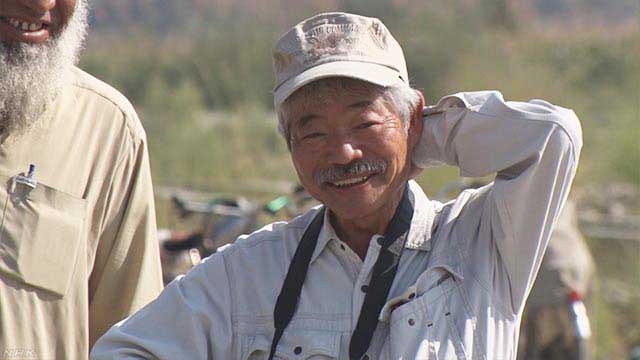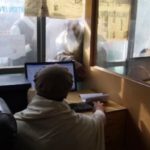Six months have passed since Japanese humanitarian Nakamura Tetsu was killed in Afghanistan. But his commitment to peace remains fresh in the minds of people throughout the country.
Earlier this year, a civic group in Kabul completed a mural of Nakamura’s face, emblazoned with the message “You live on in our hearts.”
Nakamura was killed by unidentified gunmen in the eastern city of Jalalabad on December 4, 2019. Multiple sources within the Afghan intelligence service say four men who had been detained in connection with the murder have been released due to lack of evidence. They say it is increasingly unlikely the case will be solved.
Nakamura spent over three decades in Afghanistan working on humanitarian projects to help rebuild the war-torn country. His Peshawar-kai non-governmental organization was known for its irrigation projects that brought water to impoverished rural communities.
Half a year on from his death, the situation in Afghanistan remains grim. Fighting between the government and militant groups such as the Taliban and the Islamic State have left thousands dead. The UN says civilian casualties in 2019 topped 10,000 for the sixth year in a row, with over 3,400 deaths and nearly 7,000 injured.
The country is also being hit hard by the coronavirus. The health ministry says the number of infections is nearly 30,000, and the death toll sits at close to 600.
The pandemic has disrupted Peshawar-kai’s ongoing canal projects. In April, the local government shut down roads leading to a construction site as part of efforts to prevent the spread of infection. After lengthy negotiations, authorities granted the group access to the site so they could continue their work.
But the group worries the government could shut them down at any moment if there are infections, so it requires all staff members to wear masks. Despite the difficulties, they remain committed to the work, inspired by Nakamura’s legacy.
“When we come up against difficulty, we try to imagine how Nakamura would have handled it,” says Peshawar-kai chairman Murakami Masaru. “Our current activities are a continuation of what he did.”
Since its completion, the Kabul mural has become a beloved symbol of hope for a better future.
“We will never forget such an honorable man,” says one local resident. “I hope the children in this country aspire to be like him and contribute to Afghanistan in the same way.”













